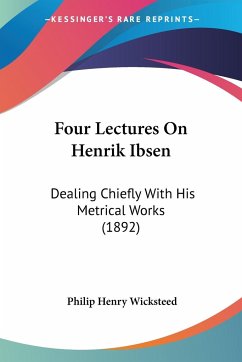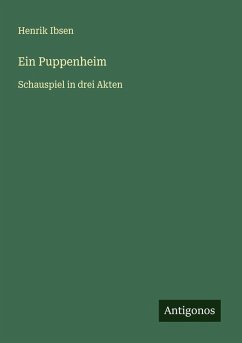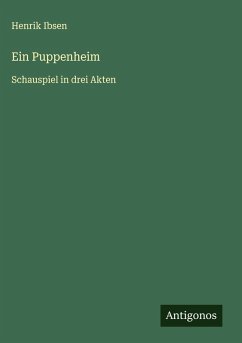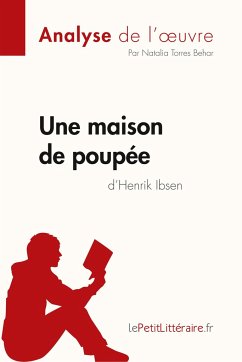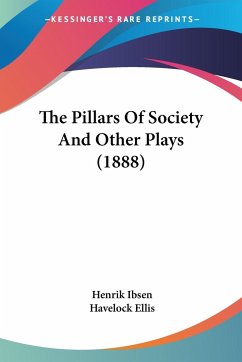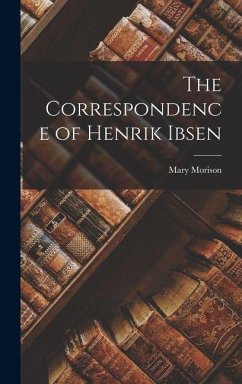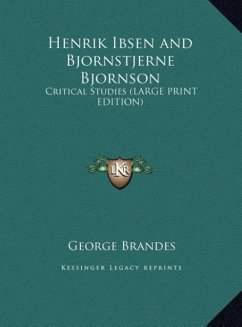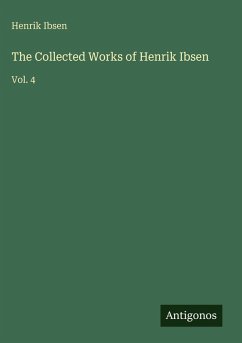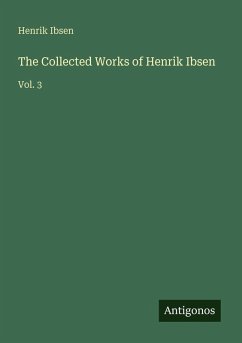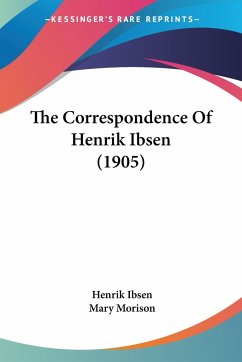
The Correspondence Of Henrik Ibsen (1905)
Versandkostenfrei!
Versandfertig in 1-2 Wochen
37,99 €
inkl. MwSt.

PAYBACK Punkte
19 °P sammeln!
The Correspondence of Henrik Ibsen is a collection of letters written by the famous Norwegian playwright Henrik Ibsen. The book was published in 1905, after Ibsen's death. The collection includes letters written by Ibsen to his contemporaries and friends, such as August Strindberg, Bjornstjerne Bjornson, and Edvard Grieg. The letters cover a wide range of topics, including Ibsen's thoughts on his own plays, his opinions on other writers and artists, and his personal life. The book is a valuable resource for scholars and fans of Ibsen, providing insight into the mind of one of the most importan...
The Correspondence of Henrik Ibsen is a collection of letters written by the famous Norwegian playwright Henrik Ibsen. The book was published in 1905, after Ibsen's death. The collection includes letters written by Ibsen to his contemporaries and friends, such as August Strindberg, Bjornstjerne Bjornson, and Edvard Grieg. The letters cover a wide range of topics, including Ibsen's thoughts on his own plays, his opinions on other writers and artists, and his personal life. The book is a valuable resource for scholars and fans of Ibsen, providing insight into the mind of one of the most important playwrights of the modern era.This scarce antiquarian book is a facsimile reprint of the old original and may contain some imperfections such as library marks and notations. Because we believe this work is culturally important, we have made it available as part of our commitment for protecting, preserving, and promoting the world's literature in affordable, high quality, modern editions, that are true to their original work.




